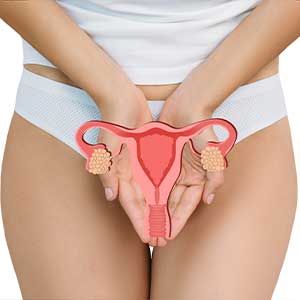Urinary Incontinence Treatment in Miami
Urinary Incontinence Q & A
What is urinary incontinence?
Urinary incontinence means accidental urine leakage. This problem affects women twice as often as men, and it’s a common problem during pregnancy and menopause. There are several types of urinary incontinence, with stress incontinence and urge incontinence being the most common in women.
How are stress and urge urinary incontinence different?
Stress incontinence is accidental urine leakage when there’s pressure on your bladder. This pressure can occur from brief involuntary motions like sneezing or coughing, but may also happen when you’re exercising, getting up from a sitting position, or picking up heavy things.
Urge incontinence is urine leakage that happens when you’re not able to make it to the bathroom in time. If you suffer from urge incontinence, you may have a powerful urge to urinate many times each day. Urge incontinence is also known as overactive bladder.
It’s possible to have both urge and stress incontinence at once, and in fact, mixed incontinence is fairly common in women.
What causes urinary incontinence?
Usually, urinary incontinence results from weakened or damaged muscles and nerves around your bladder. Certain conditions tend to cause this type of muscle or nerve damage, including:
- Pregnancy
- Extra weight
- Chronic constipation
- Diabetic nerve damage
There may also be urinary incontinence causes that aren’t linked to muscle or nerve damage. Some medications may cause temporary urinary incontinence, including diuretics.
If you drink a lot of caffeine, you may experience urinary incontinence because it can have a diuretic effect. Bladder infections or other urinary tract infections can also cause temporary urinary incontinence.
How is urinary incontinence treated?
Treatment depends on the kind of urinary incontinence, the reason for your incontinence, and your symptoms. Sometimes, lifestyle changes like cutting down on caffeine can work. Your Lievano Perez Obstetrics and Gynecology of Miami may also recommend pelvic floor exercises to strengthen the muscles supporting your bladder.
Medications like oxybutynin or tolterodine may help, but you have to take them very consistently to get optimal symptom relief. If you need urinary incontinence help but don’t want to use medication, a noninvasive treatment with the Votiva™ Radiofrequency system can often relieve your symptoms while also helping with other problems like vaginal atrophy.
Click the online scheduler or call Lievano Perez Obstetrics and Gynecology of Miami for your appointment now.
PATIENT FEEDBACK
“Dr. Perez is a great physician, extremely thorough and knowledgeable. She takes time with you in the room and covers all bases.”
APRIL W., patient
“All in all, this place has great doctors. You can tell by the amount of pregnant women that are trusting their own and their children’s lives to these doctors.”
LYNETTE B., patient
“The care the doctors provided was so thorough and was delivered with such compassion, that it eliminated any stress during a very exciting yet scary process.”
VALERIE P., patient


















